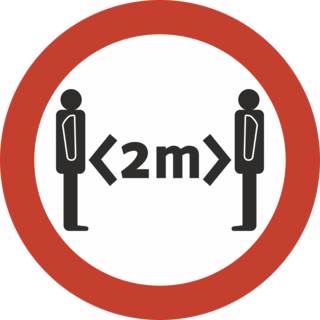Coronavirus Disease 2019
Female Athletes Show More Covid-19 Caution than Males
New research offers more evidence that women are the more "Covid-conscious" sex.
Posted May 26, 2021 Reviewed by Gary Drevitch
Key points
- Female professional tennis players were more likely to skip the 2020 U.S. Open than male tennis players due to Covid-19 concerns.
- This is consistent with other research showing women to be the more "Covid-conscious" gender.
- In general, women have appeared more willing to comply with preventive measures, and more likely to avoid settings perceived as risky.

Research has shown that, since the beginning of the pandemic, women have exercised more Covid-19 caution than men, despite having a lower mortality rate.
A new study published in PLOS-ONE suggests that this pattern extends to professional sports.
A team of researchers led by Zuzanna Kowalik of the Institute for Structural Research in Warsaw, Poland found that women tennis professionals were significantly more likely to voluntarily withdraw from the 2020 U.S. Open — the first major tennis tournament to have been held since the pandemic temporarily halted competition in early 2020 — because of COVID-19 concerns.
“About 15% of the withdrawal probability explained by our model can be attributed to gender, namely a higher propensity to withdraw among women," say the researchers. To be precise, there were 25 athletes who withdrew from the event due to Covid-19. Of those 25, 19 were female — including Ashleigh Barty (#1 world ranking), Simona Halep (#2), Elina Svitolina (#5), and Bianca Andreescu (#6).
Gender was not the only factor influencing a player’s decision to withdraw. The researchers note that a player’s country of residence, age, and ranking also factored into the equation. “Players from countries characterized by relatively high levels of trust and patience and relatively low levels of risk-taking were more likely to have withdrawn than their counterparts from other countries,” state the researchers. “Older players, and higher-ranked players, were also more likely to withdraw.”
Of all the variables measured by the researchers, player ranking was the factor most predictive of a player’s propensity to withdraw: “Professional tennis exhibits rather large concentration of incomes among those at the top. The top 50 players (who constitute 1% of all players) earn more than 50% of all prize money, and the average earnings of top 50 players are about five times the average earnings of players ranked 51–100, both among women and men. Hence, the top 50 players may be more prepared to forego income from a given tournament perceived as risky.”
This finding meshes with other research showing that greater gender equality is associated with an increase in the divergence in preferences and behaviors between men and women.
The study is not without its limitations. For one, the sample size is relatively small. Future work is needed to confirm whether this effect can be replicated in other settings, in tennis or in other professional sports. There is also the issue of whether career length could be a determining factor. For instance, if it were the case that women, on average, had longer professional tennis careers than men, they might be more apt to skip a tournament. This hypothesis, however, is not supported by the data. While it is true that women tend to achieve their highest ranking earlier than men, the average career length of men and women tennis professionals is not significantly different.
The authors conclude, “Our findings have implications for sport competitions as well as for labor markets. Women appear to be more concerned about the pandemic, more willing to comply with preventive measures, and more likely to voluntarily avoid performing in a setting perceived as risky. Organizers of sporting competitions should perhaps take these differences into account and adapt the rules and preventive measures to reflect higher level of concern among women.”
References
Kowalik Z, Lewandowski P (2021) The gender gap in aversion to COVID-19 exposure: Evidence from professional tennis. PLoS ONE 16(3): e0249045.


